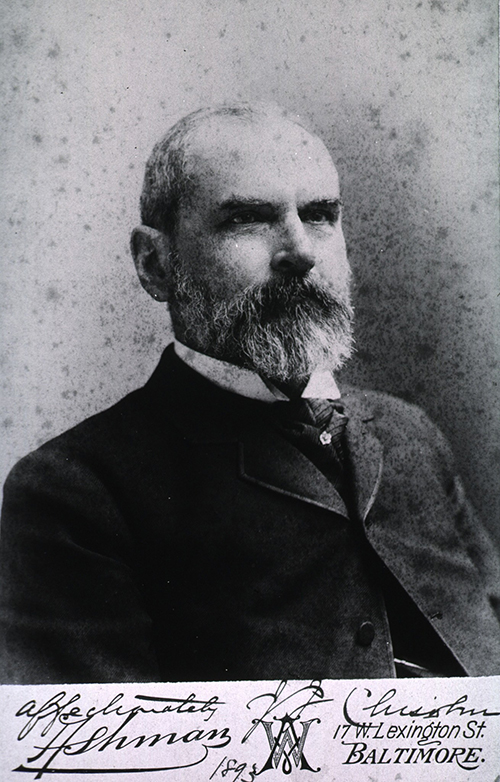A manual of military surgery: for the use of surgeons in the Confederate Army. Richmond, VA: West & Johnson, 1861.
 Julian John Chisolm, a native of Charleston, South Carolina, attended the medical college of his home state. Like many doctors of the time, he received further post-graduate education in France, where he visited the most famous clinics and came into contact with the leaders of the new so-called “Paris medicine” at the cutting edge of his field. These experiences left a lasting impression on the young physician. In 1858, Chisolm was named Professor of Surgery at the Medical College of the State of South Carolina, which was considered the most important medical school south of Philadelphia at that time (Atkinson 216). He was a conscientious professor, known for holding weekly conferences with the graduating class to allow for closer teacher and student interaction. In 1859, Chisolm traveled again to Europe, and was in Milan when troops began returning from the battlefields of the war between Austria and Italy. Thus, he had the opportunity to observe military hospitals and their treatment of the wounded (In honor of Julian John Chisolm 2). Not long after his return, the American Civil War broke out, and he had the opportunity to use this valuable knowledge obtained from his travels. Chisolm was called to duty as army surgeon for the Confederacy in 1861.
Julian John Chisolm, a native of Charleston, South Carolina, attended the medical college of his home state. Like many doctors of the time, he received further post-graduate education in France, where he visited the most famous clinics and came into contact with the leaders of the new so-called “Paris medicine” at the cutting edge of his field. These experiences left a lasting impression on the young physician. In 1858, Chisolm was named Professor of Surgery at the Medical College of the State of South Carolina, which was considered the most important medical school south of Philadelphia at that time (Atkinson 216). He was a conscientious professor, known for holding weekly conferences with the graduating class to allow for closer teacher and student interaction. In 1859, Chisolm traveled again to Europe, and was in Milan when troops began returning from the battlefields of the war between Austria and Italy. Thus, he had the opportunity to observe military hospitals and their treatment of the wounded (In honor of Julian John Chisolm 2). Not long after his return, the American Civil War broke out, and he had the opportunity to use this valuable knowledge obtained from his travels. Chisolm was called to duty as army surgeon for the Confederacy in 1861.
Many of the Confederate military surgeons were general practitioners with insufficient experience treating gunshot wounds, and the South had no handbook on military medicine. During the previous years of peace, there had been little interest in writing on the subject of soldiers’ health, and almost immediately after the war began, the South was blockaded from communication with Europe. With the South cut off from critical information from Europe and with pressing medical needs brought on by war, in 1861 Chisolm wrote A manual of military surgery to fulfill the demand (Chisolm iii). The Reynolds-Finley Historical Library includes this book, which quickly became a standard text for Southern army surgeons and went through three editions. The book provides surgical instructions and advice on treating the sick and wounded on and off the field. It addresses issues such as food, clothing, hygiene and even amusement for the continuing health of soldiers. In writing this work, Chisolm relied upon knowledge gained during his excursions in Europe and on the medical publications acquired therein (Chisolm iv).
While serving the Confederacy, Chisolm also became known for inventing a chloroform inhaler which was used heavily throughout the war. He was later employed as medical purveyor and director of a Confederate pharmaceutical plant. After the war, Chisolm moved to Baltimore, Maryland in 1868, and soon joined the medical faculty of the University of Maryland. He held several important positions at that university over the next 28 years, including Dean of the Medical School, Chair of Operative Surgery and Professor of Diseases of the Eye and Ear. Most of his academic career in Maryland was devoted to ophthalmology, and he became an eminent figure in this field, publishing many works on the topic. Among his thankful clients was Helen Keller whose father brought her to Chisolm for consultation, and to whom he gave hope and guidance by suggesting that Helen be taught despite the fact that she would never see or hear (In honor of Julian John Chisolm 18). Also, he left a lasting impression upon his many admiring students. He retired from the University of Maryland in 1896, and became a Professor Emeritus.
Image: Julian John Chisolm, Courtesy of the National Library of Medicine.
